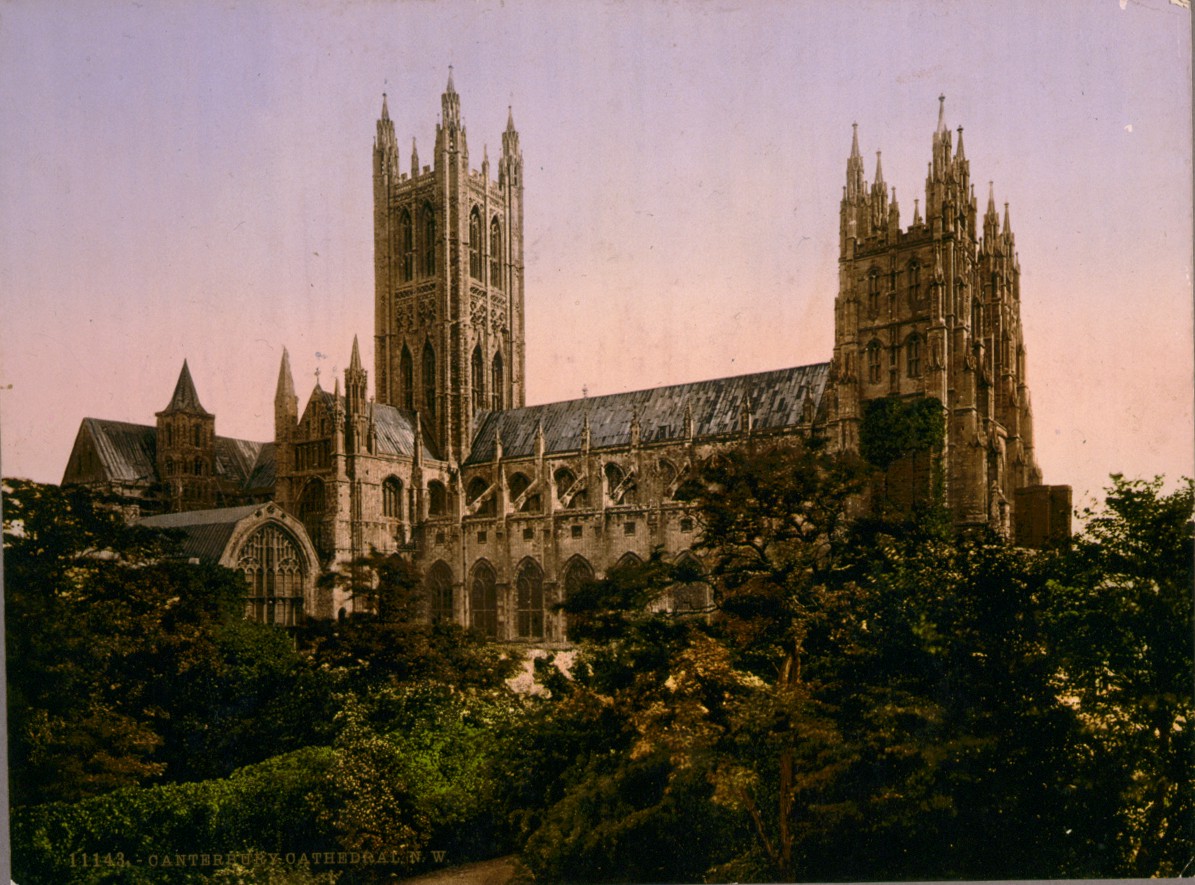Cardinal Newman’s favorite quote is “to be deep in history is to cease to be Protestant.”
Certainly that was the case for me. The little Evangelical church in which I was brought up was founded in 1963 (or thereabouts) We were big on “new” but not so big on “old.”
I was attracted to the historic church when I was at college and that church was the Church of England. Enchanted by England, illuminated by C.S.Lewis and inspired by Tolkien and Eliot, I went to England and plunged into the historic church. All represented by Canterbury Cathedral–pictured here.
But that only took me back five hundred years to the Protestant revolution. However, lurking there in the ancient cathedrals and parish churches was another church that was already a thousand years old and more. It was, of course, the Catholic Church, and when, in 1987 I travelled across Europe to Jerusalem, staying in monasteries along the way, it was the Catholic Church I met, and when I visited the tombs of the apostles and finally walked where Jesus walked, the Catholic Church was there to greet me with the words, “We have been here all this time…”
On returning to the USA in 2005 I was again aware of what a new country we are and how ignorant many of us are of history. I use the word “ignorant” objectively. We just don’t know and we don’t know what we don’t know. In Europe history surrounds you. Every acre is imbued with history in a way that simply isn’t true in the USA.
As a result, our culture is more transitory and restless. We are too often restless because we are rootless.
History gives us stability. History gives us roots.
History also helps us to understand what went wrong in the past so we can understand the present more positively and plan confidently for the future.
Therefore it came to me that it would be a good idea to produce some content on history–but instead of more blog posts, I am putting together “Triumphs and Tragedies- a twenty part podcast history of the Catholic Church. I say twenty parts because I am planning to do an overview of every century of the church in each episode. I expect it will stretch further than that when we get to centuries like the sixteenth, but I hope this overview will help us get the big picture.
I will be focussing on the corruption and heresy in the church in every age and also on the answers, the apologists the church teaching and the saints who answered those problems. I’ll not be spending much time on the politics as most historians do, but trying to dig into the spiritual currents of what God has been doing in his church.
The first, introductory episode was launched last Thursday. It is available here on my blog, but you can also subscribe at my iTunes channel here. The podcast series is also available at BreadBox media. Just scroll down to my title page and connect through with PodBean. The BreadBox media connection is probably the best one. I’ll be posting the episodes one by one here on the blog but they’re mixed with my other blog posts. At iTunes they’re posted alongside my podcast homilies.
Triumphs and Tragedies is free for all to enjoy and share. There is an extra bonus though for Donor Subscribers to my blog. For each of the episodes I’ll be posting at least one blog post about that episode, giving more detail, linking to other sites and giving further resources for reading. These blog posts will be in the Church History section of the blog reserved for Donor Subscribers. To learn more about becoming a Donor Subscriber go here.
For the first episode of Triumphs and Tragedies go here.







Leave A Comment
You must be logged in to post a comment.